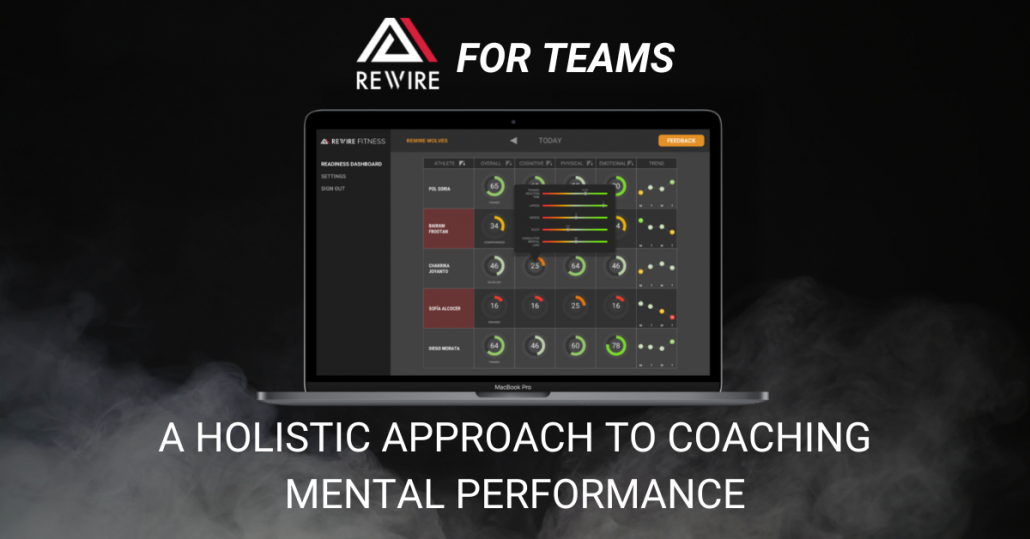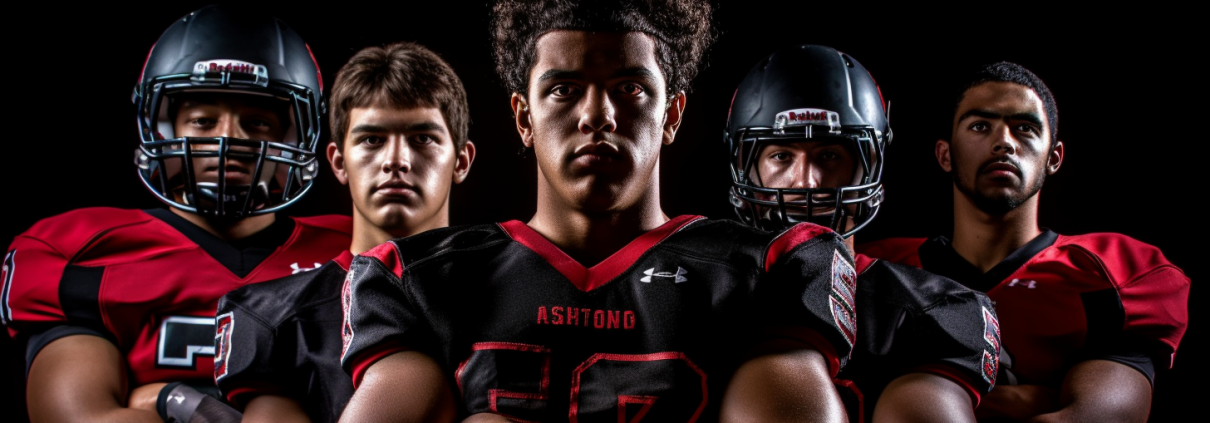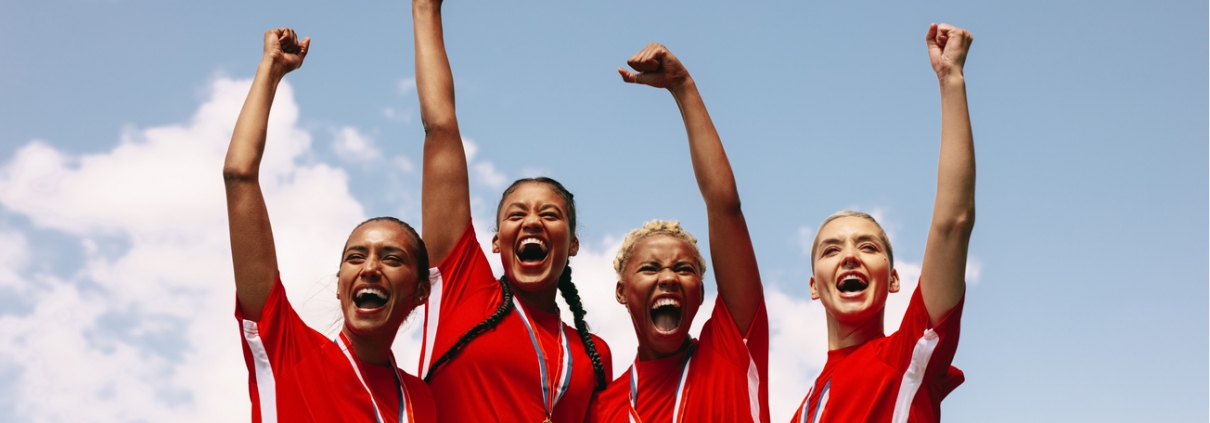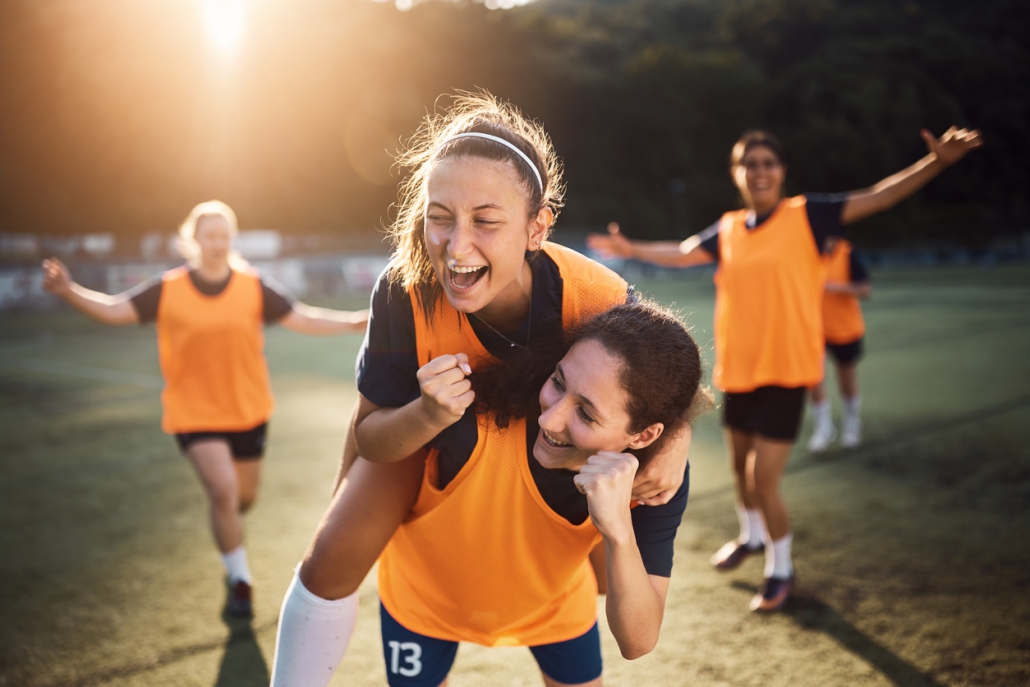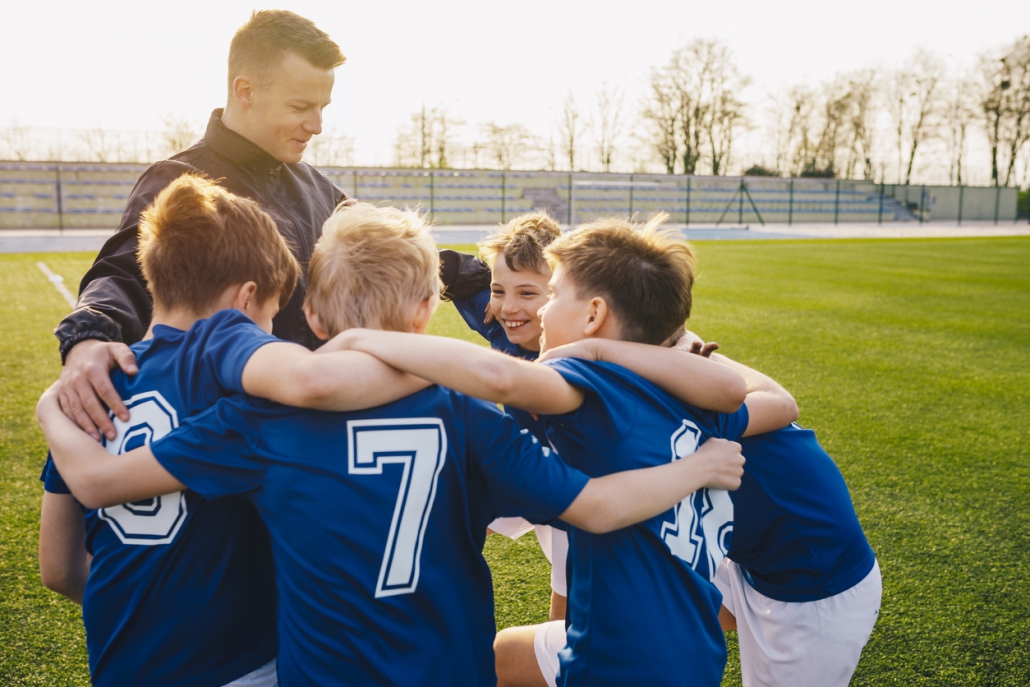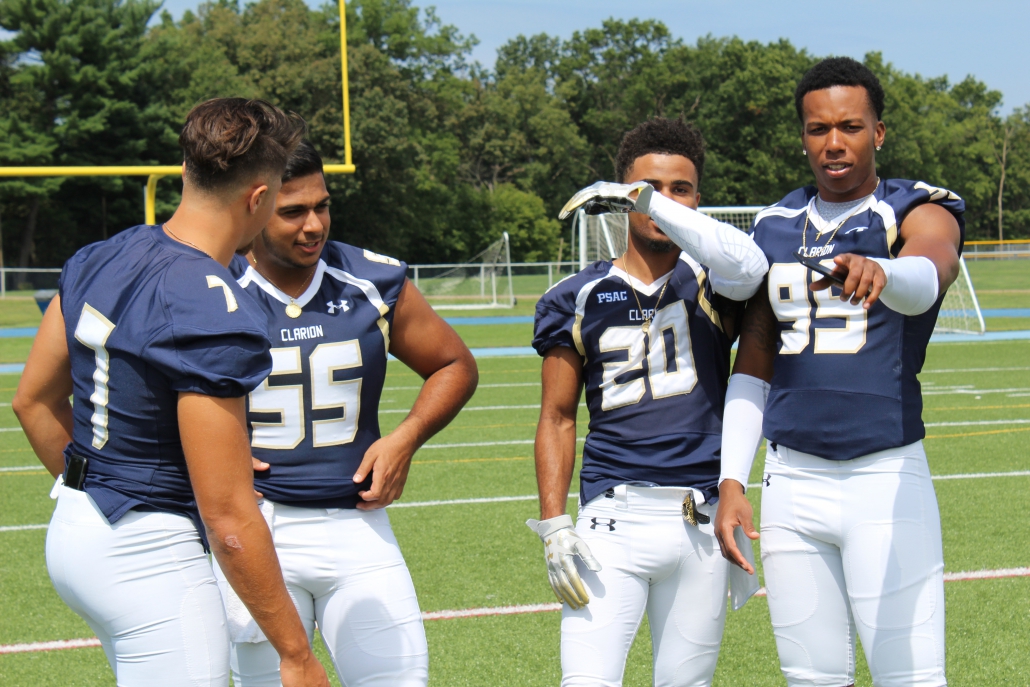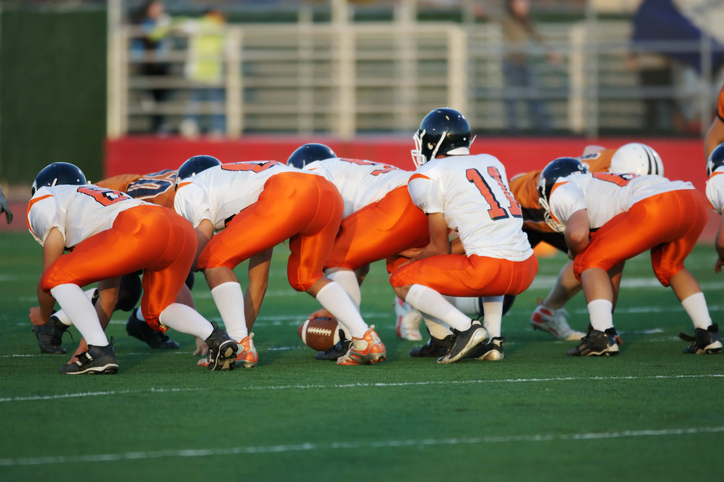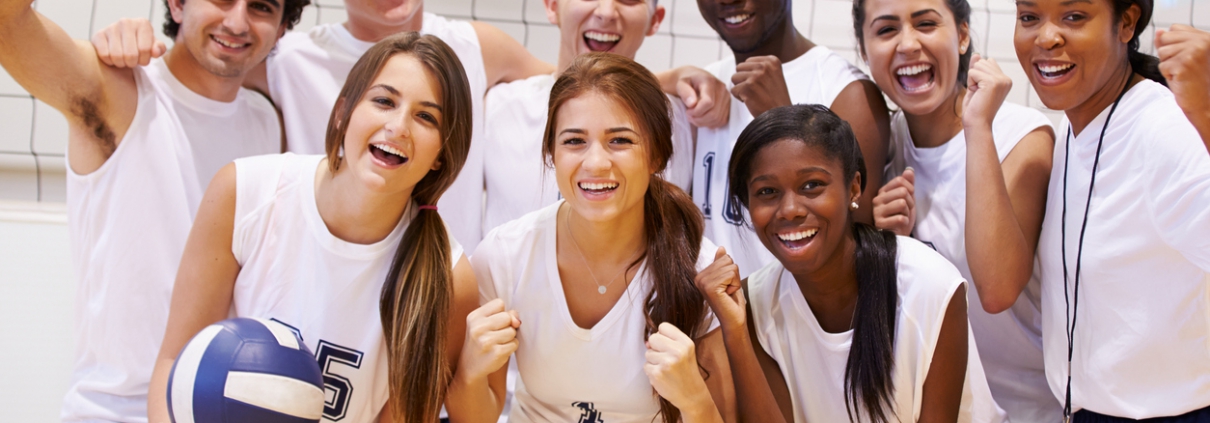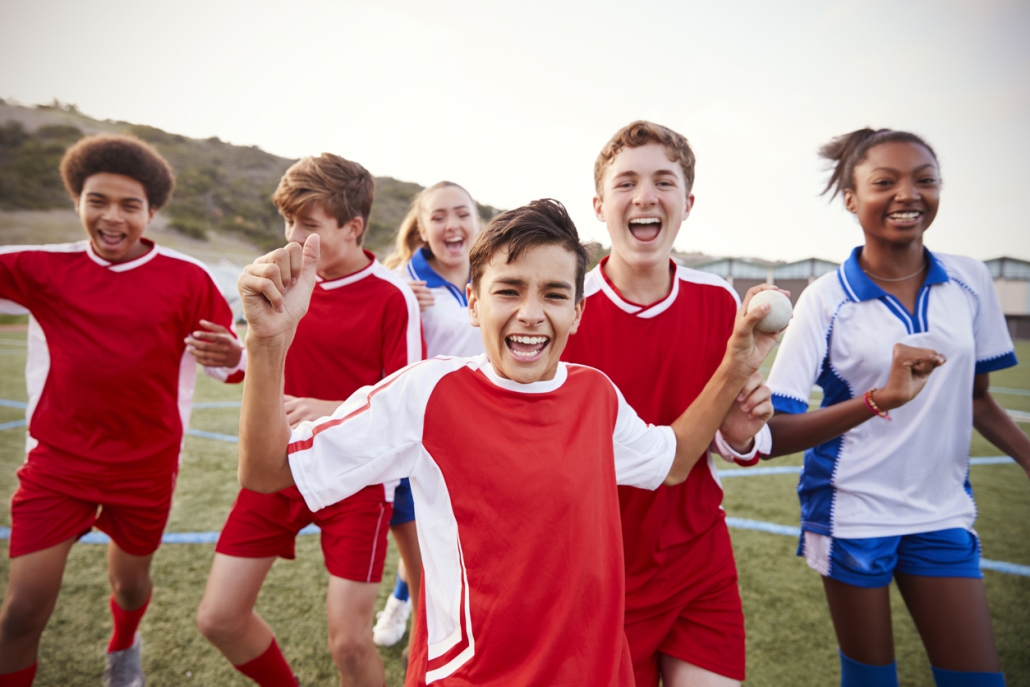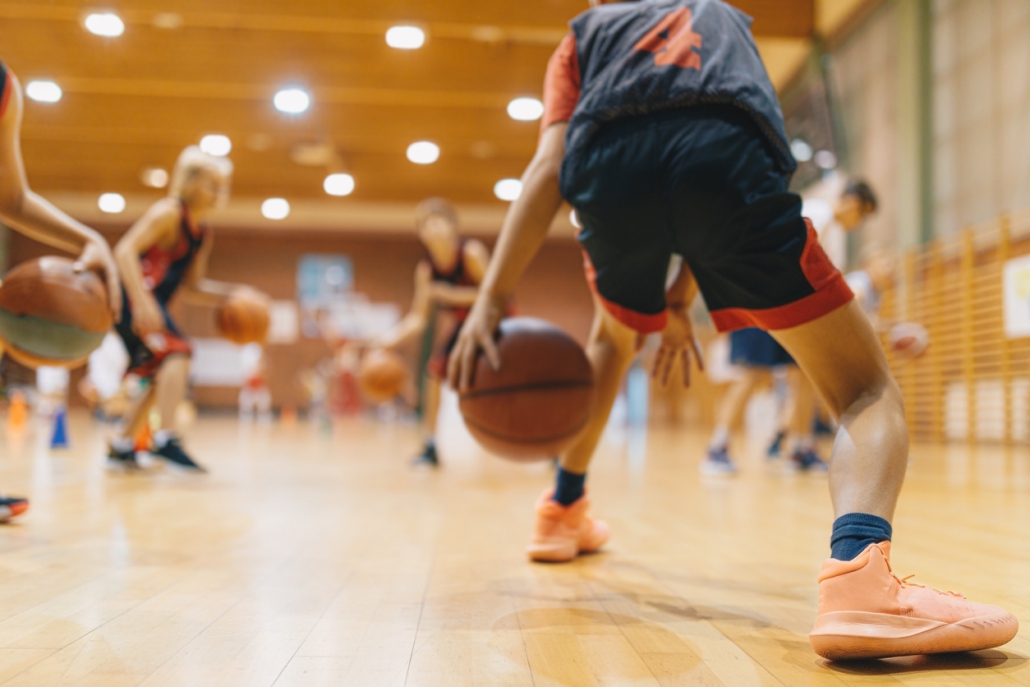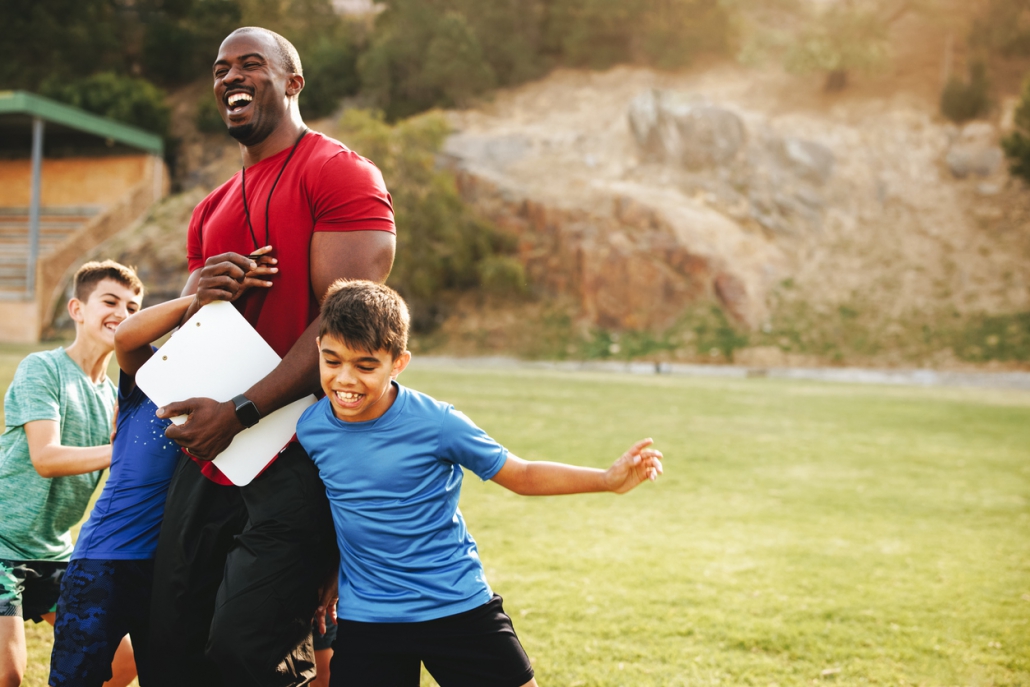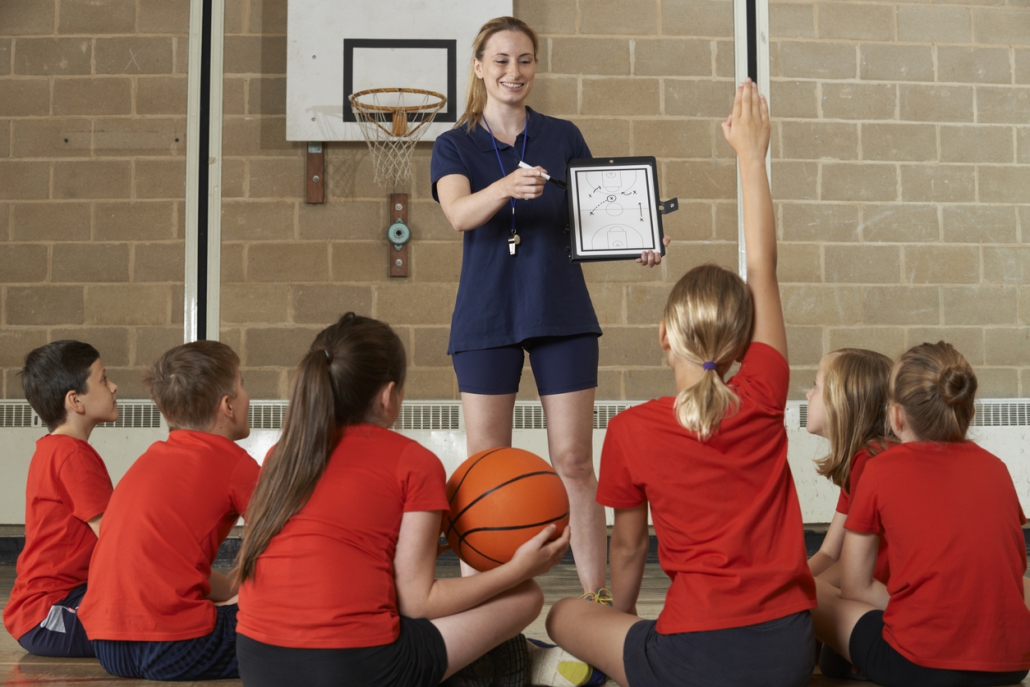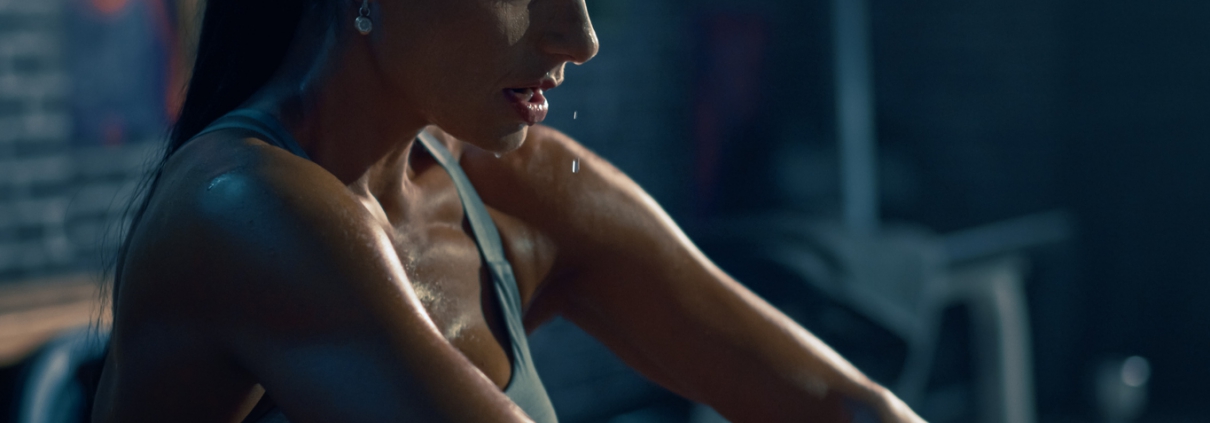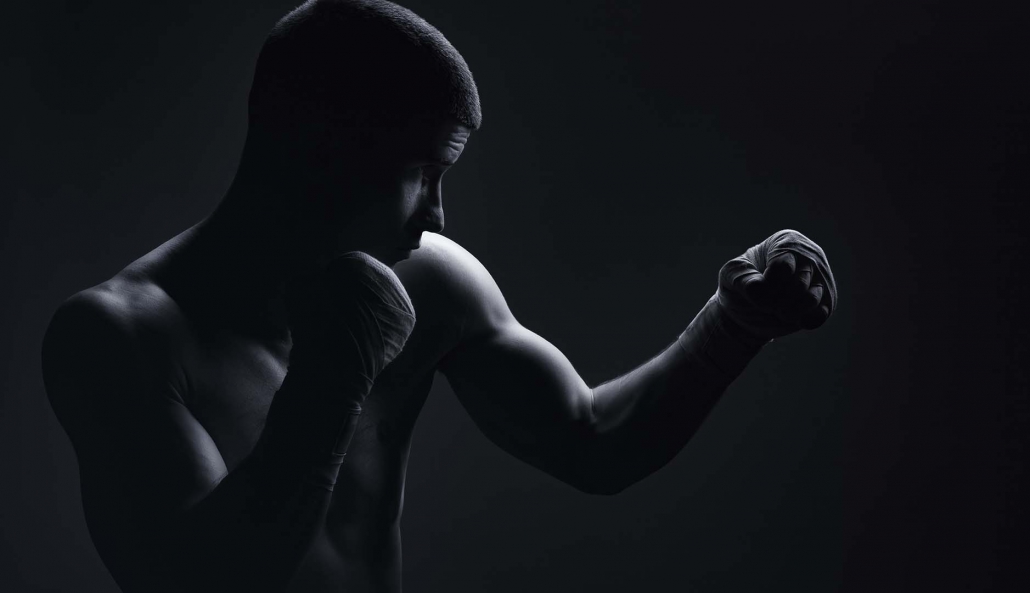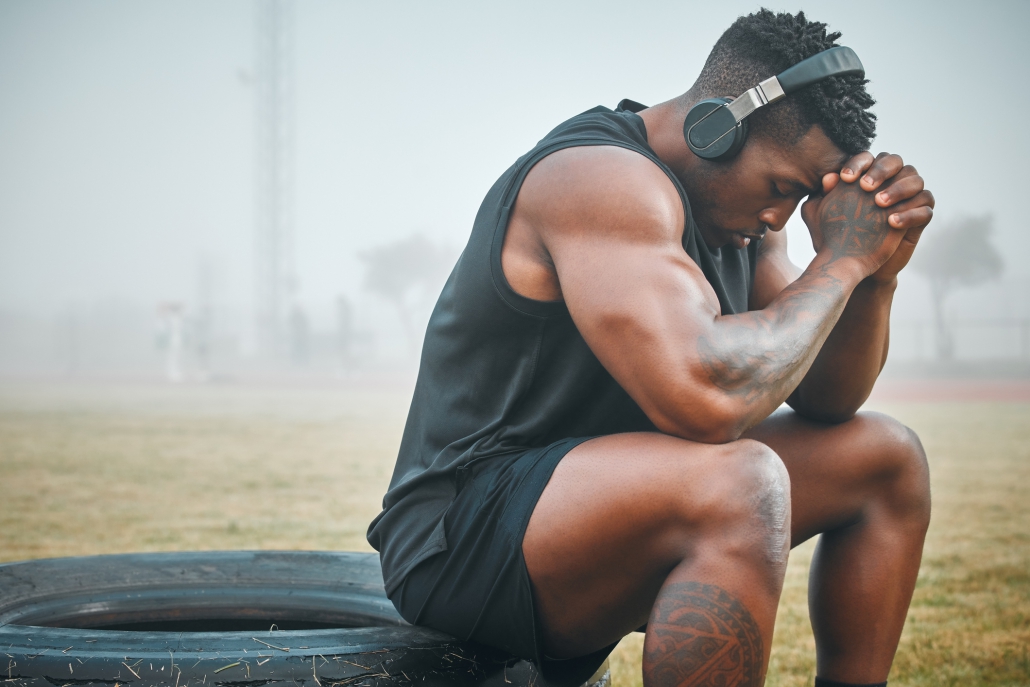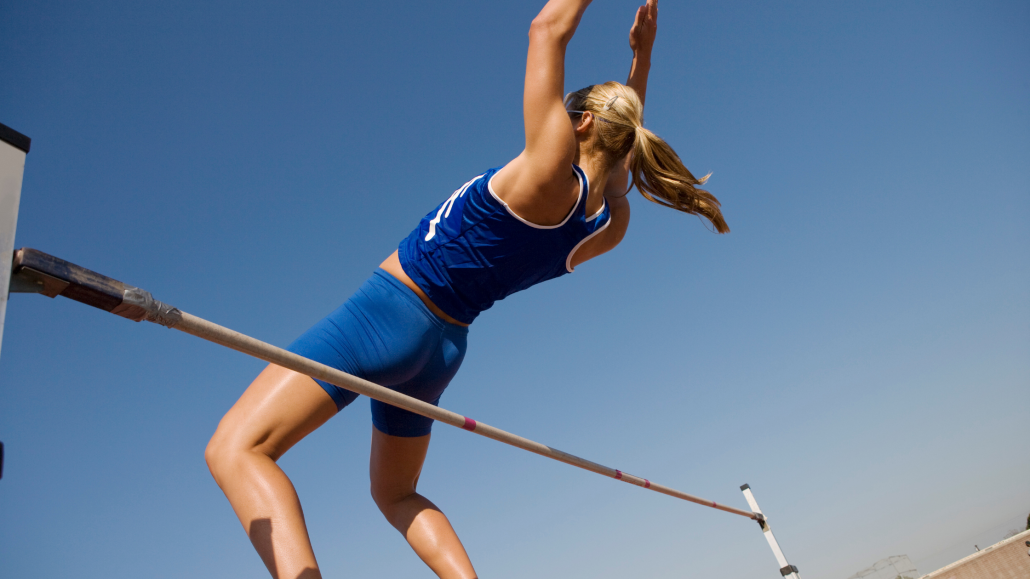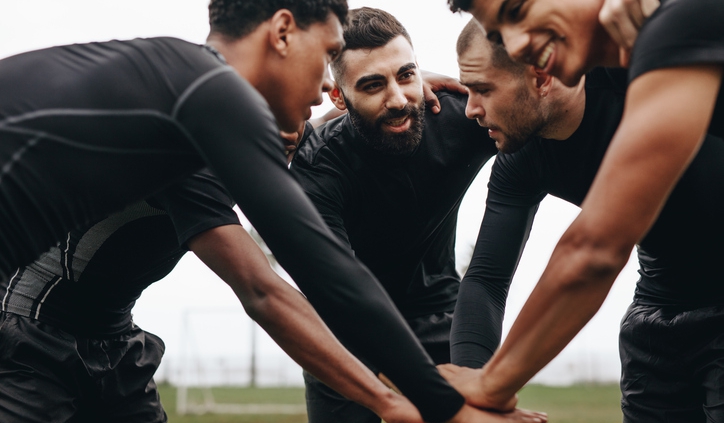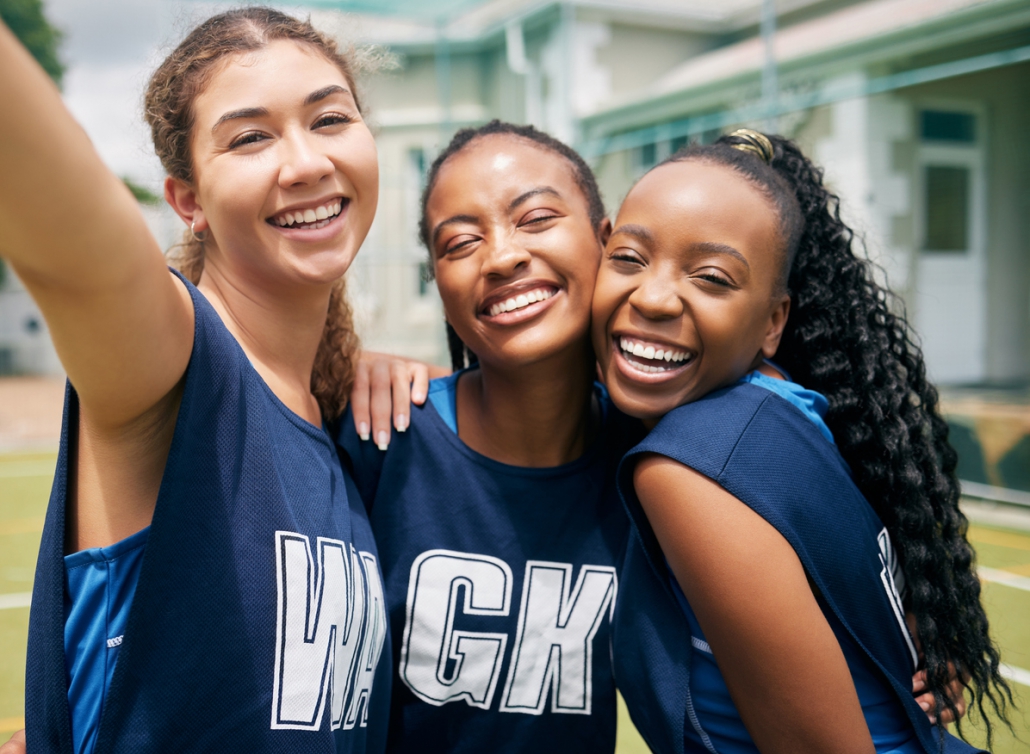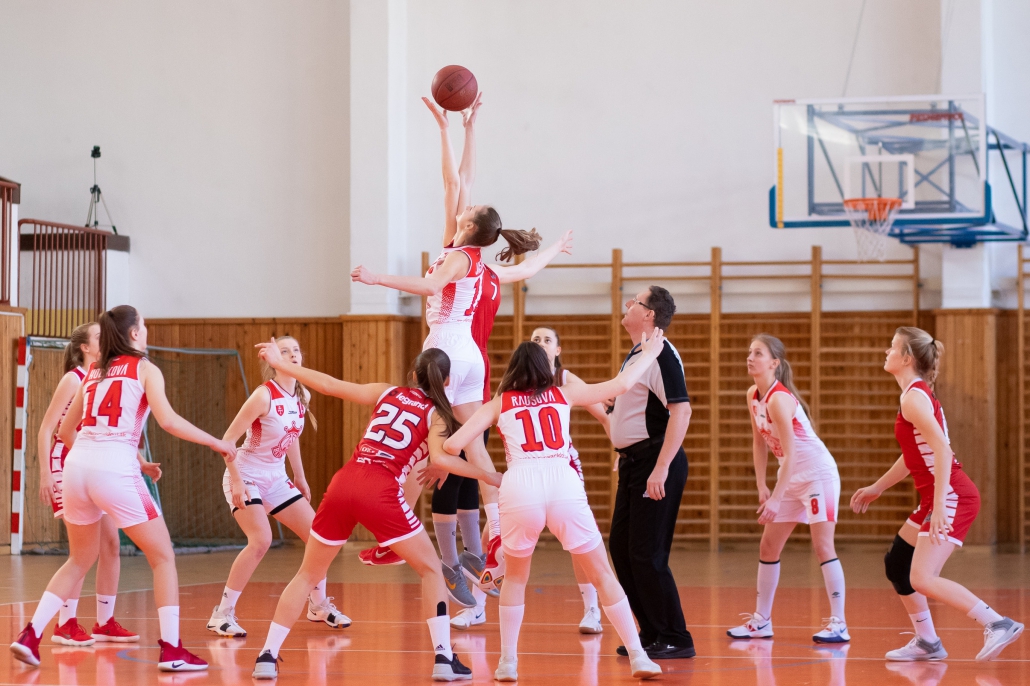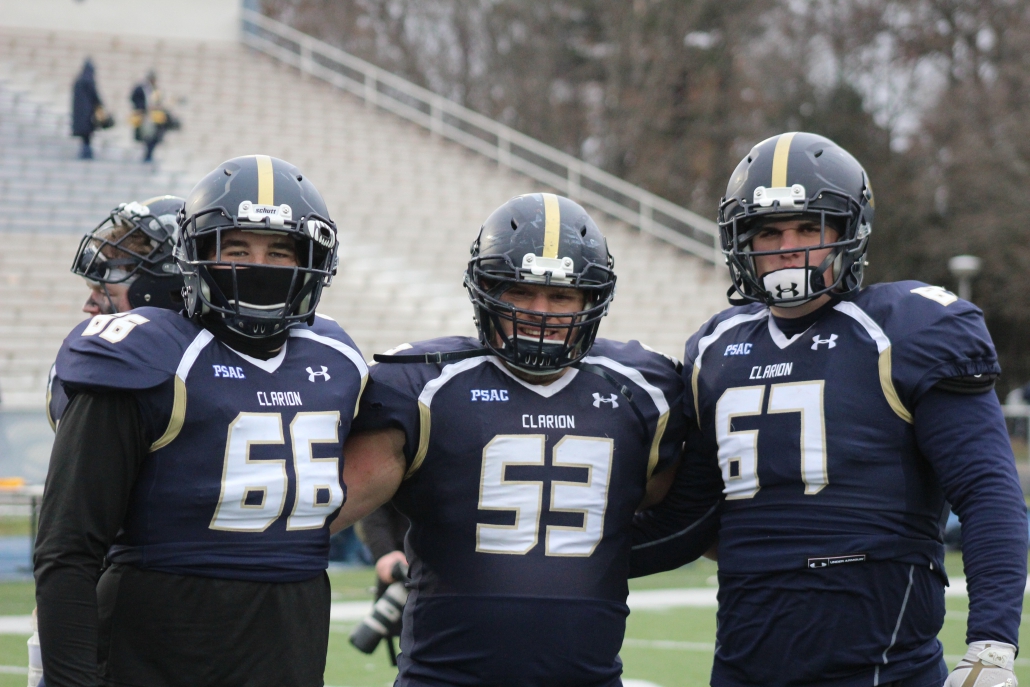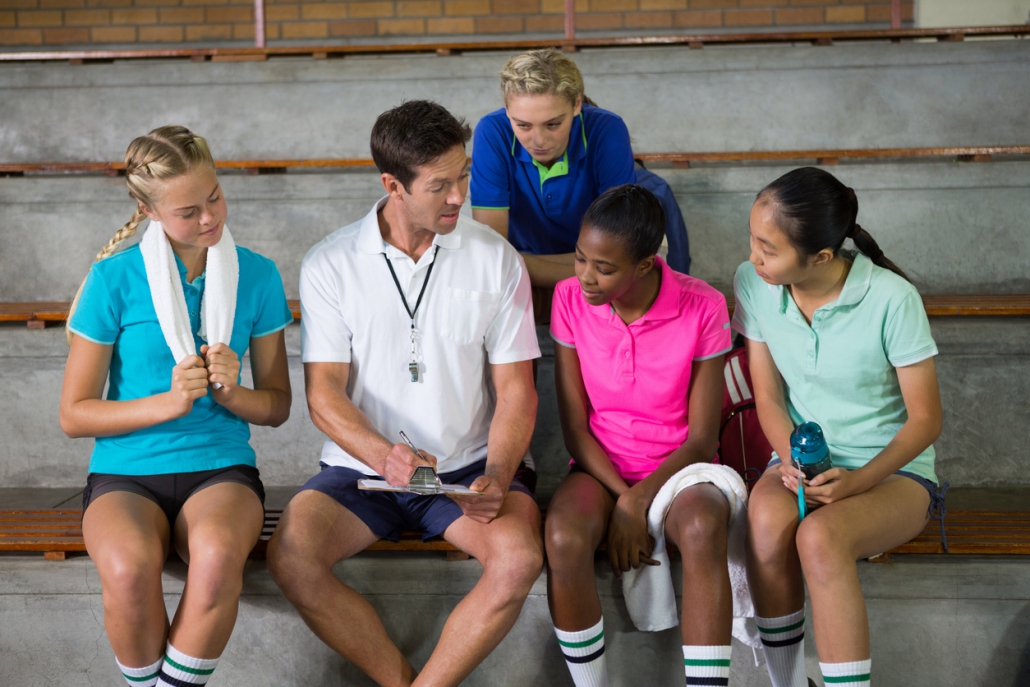How to Build Mental Toughness in High School Athletes
Improve mental toughness in high school athletes to boost performance on and off the field. It’s a skill that transfers to adulthood and beyond — and one that can be taught. So it’s best to teach it early and set adolescents up for success.
High school coaches can add basic practices and tweak their current training style further to improve mental toughness, discipline, and performance. Continue reading for actionable tips and strategies you can implement to help your athletes become mentally tough.
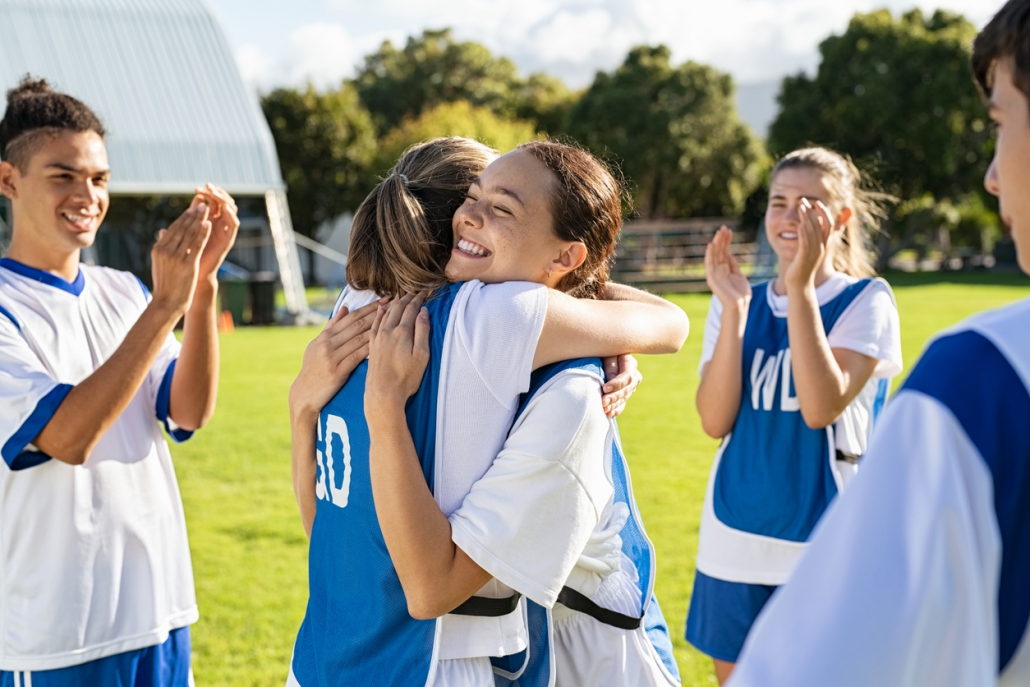
Create a positive training environment
As a coach, you lead by example, especially when mentoring high school athletes. One of the best ways to teach mental toughness is to create a positive training environment that facilitates growth.
The environment says a lot about how you want your athletes to behave and learn.
Training should be fun — that doesn’t mean it can’t be challenging, but your athletes should look forward to their sessions. So how do you do this — how do you create a positive training environment?
Introduce team-building exercises, bonding activities, and fun minigames — these recommendations are also great for building team chemistry.
Also, practice what you preach. You should practice mental toughness (and be mentally tough) if that’s what you want to teach. Lead by example.
Related: What Makes a Good High School Sports Coach?
It’s all about communication
Many coaches adopt the “bully” mentality — they give drill after drill, instruction after instruction, and then wonder why their athletes aren’t improving. The issue here is that communication is a two-way street.
And yes, while these exercises may build discipline and mental toughness — to some extent, creating an open line of communication and working together may prove better. Athletes are more likely to talk to you when struggling, mentorship will become more collaborative, and performance typically improves.
In a high school environment, you can go a step further by hanging around after practice or letting them know they can talk to you about anything — not just sports.
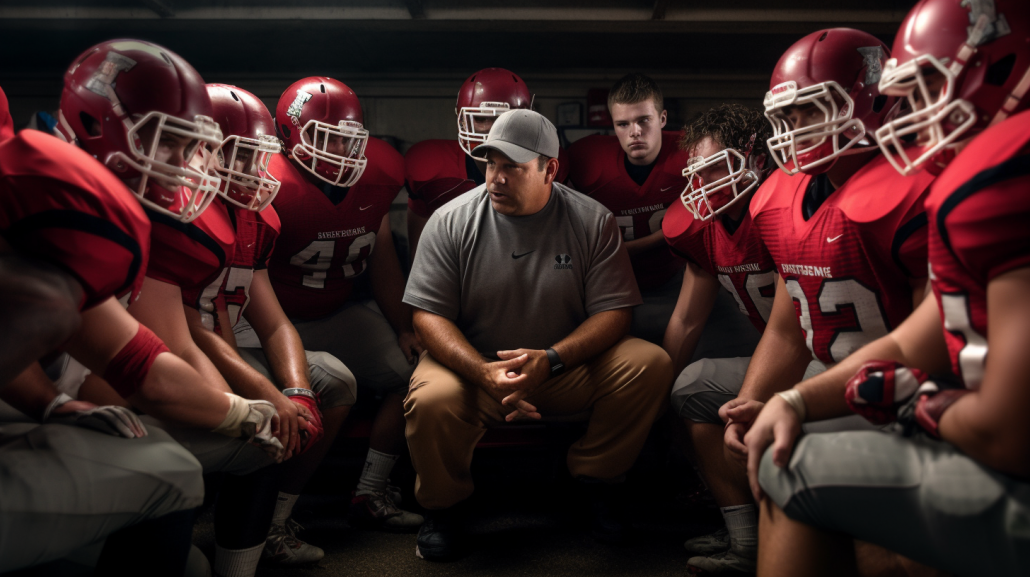
Introduce competition and pressure to build mental toughness
A lot of high school teams and athletes deal with pressure almost exclusively in competition. This is usually a handful of times a season. But instead, why not create training scenarios that mimic competition during practice?
Doing so has many benefits. For example, you can identify (a) what’s going well and (b) what can be improved. This is an excellent way to build mental toughness. Let’s say an athlete loses motivation and then makes mistakes after a call that was not in their favor by the referee — you can practice these exact scenarios to help prevent the dip in motivation and performance.
Introducing competition is easy to do as well. For example, you can split your team into two, or if you coach multiple teams, you can have them play each other.
After the friendly competition, you can ask high school athletes (a) what they think went well and (b) what they think can be improved. Getting feedback directly from your athletes increases accountability. You can also cross-reference this feedback with your notes to implement new skills or even mental training to improve mental toughness and performance.
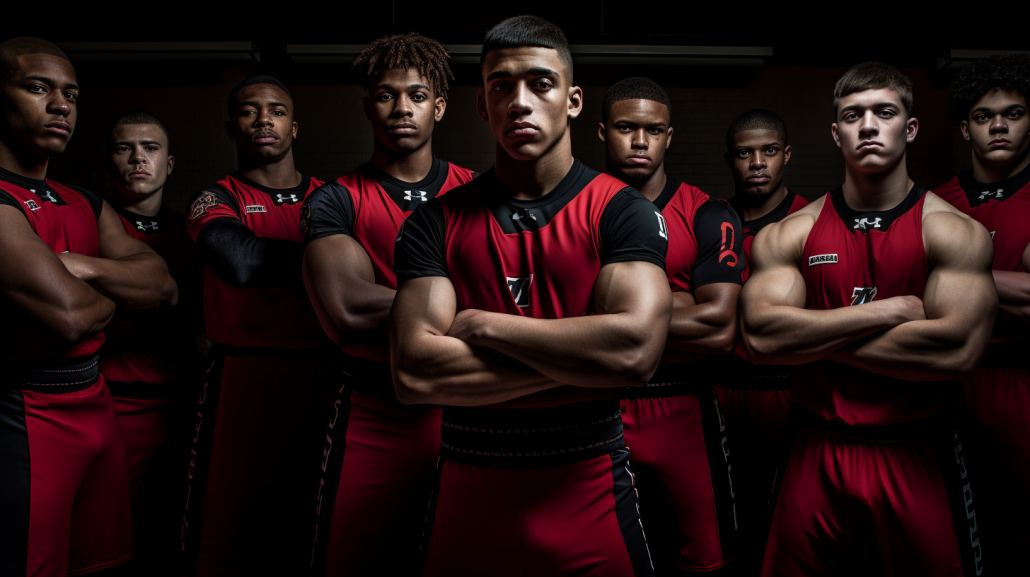
Teach basic mental training skills
Mental skills provide athletes with the tools to increase confidence and build mental toughness. It’s also a useful tool to improve skill, e.g., visualizing freekick technique.
Despite this, however, high school students are less likely to perform more advanced mental skills because they may seem “anecdotal.” So instead, try and teach the fundamentals so they can see how effective they are, and then build on their skills over months and years.
Basic mental skills include [3]:
- Positive self-talk
- Goal setting
- Visualization
- Mindfulness
We’ll explain each of these in more detail with examples of how to execute them with your high school athletes below.
Want more guidance on mental training? Read our blog post on how to create a mental training program for athletes.
Positive self-talk
Self-talk is one of the easier mental skills to implement. It can help increase confidence, reduce anxiety, and improve task performance. But when people think of self-talk, they often think of shouting affirmations in the mirror.
And while this is partly true, it’s not the only way to do it. For starters, most people don’t do that — if they do use self-talk, it’s usually done in their minds. It’s words, phrases, and cues that trigger an emotional response. For example, a cross-country runner might use self-talk cues such as “relax shoulders” and “high knees.”
The same runner might use self-talk during an event to break up the race into smaller bite-size chunks. Let’s say the race is 5 laps long — they might say to themselves, “1 lap left,” when there’s actually 2 or 3. You can trick your brain into perseverance, and this is a powerful way to build mental toughness.
Why not introduce your athletes to a basic self-talk script?
Goal setting
Goal setting is a tried and tested method of improving performance and mental toughness.
One study in adolescents analyzed the impacts of a 12-week core strength training program. Results found that those who combined goal setting with core strength training were more effective in improving fitness [1].
This demonstrates the impact of goals — they are a must-have.
But how do you set effective goals? We suggest using the SMART goal-setting principles [2]:
- Specific: state exactly what you want to achieve or improve.
- Measurable: how can you accurately measure progress?
- Achievable: Is it possible? You need to be realistic.
- Realistic: your goals should be challenging, but not impossible.
- Time-bound: set a realistic timeframe to achieve your goals.
When working with a team, consider setting shared goals and actually setting these together. Don’t just make them your goals — sit down together and collectively come up with goals to work towards. This will also help accountability and improve mental toughness.
Visualization
Visualization is one of the more difficult mental skills to implement with high school athletes.
Instead of diving into the deep end, we recommend trying a simple exercise before practice: ask your athletes to visualize a skill they want to improve, imagining successful skill performance. For example, this could be taking a free kick, diving to save a shot in the top left corner, or successfully dribbling around a player.
This should improve focus within the training session, and add more intention and goal-directed behavior to get better at the skill they have identified.
Use worksheets or other written feedback methods, such as surveys or questionnaires, to track progress, i.e., if your athletes find these mental exercises valuable.
Mindfulness
When people hear mindfulness, they often think of meditation. And while this is one of the components, mindfulness also comprises other exercises such as deep breathing, relaxation, and even journaling to provide clarity.
While you can use visualization at the start of practice, you can use mindfulness at the end of practice. For instance, you can ask your athletes to jot down what they think went well and want them to improve in the next session. This is a simple way to increase accountability and allows your athletes to become intentional.
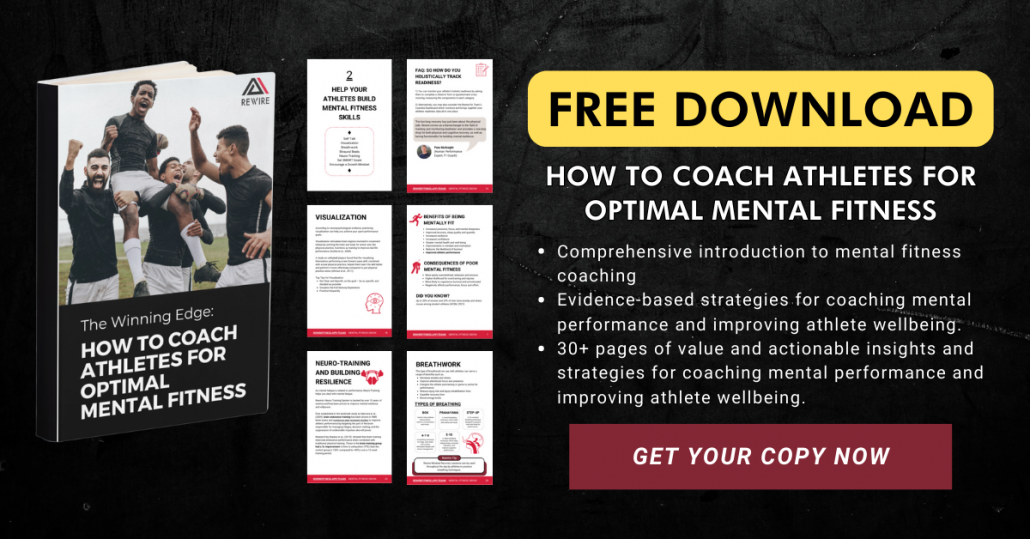
Improve mental toughness with Rewire
“Our coaches can see every night to stay on top of fatigue and readiness. So incredibly useful.” – Jez Cox, Head Cycling Coach, Oaklands Wolves
Coaches can use Rewire to help prime their athletes for performance, increasing mental toughness, focus, and readiness to perform at their best. You also receive insights into athlete readiness to help you make smarter training and recovery decisions.
Your athletes get access to the athlete platform — a science-backed toolkit that contains neuro-training exercises to improve mental resilience and mindset, and promotes mind and body recovery.
Find out more about Rewire for teams
References:
- Lu, Y., Yu, K. and Gan, X., 2022. Effects of a SMART Goal Setting and 12-Week Core Strength Training Intervention on Physical Fitness and Exercise Attitudes in Adolescents: A Randomized Controlled Trial. International Journal of Environmental Research and Public Health, 19(13), p.7715.
- McCarthy, P.J. and Gupta, S., 2022. Set goals to get goals: Sowing seeds for success in sports. Frontiers for Young Minds, 10(10.3389).
- Röthlin, P., Horvath, S., Trösch, S., Holtforth, M.G. and Birrer, D., 2020. Differential and shared effects of psychological skills training and mindfulness training on performance-relevant psychological factors in sport: a randomized controlled trial. BMC psychology, 8, pp.1-13.
